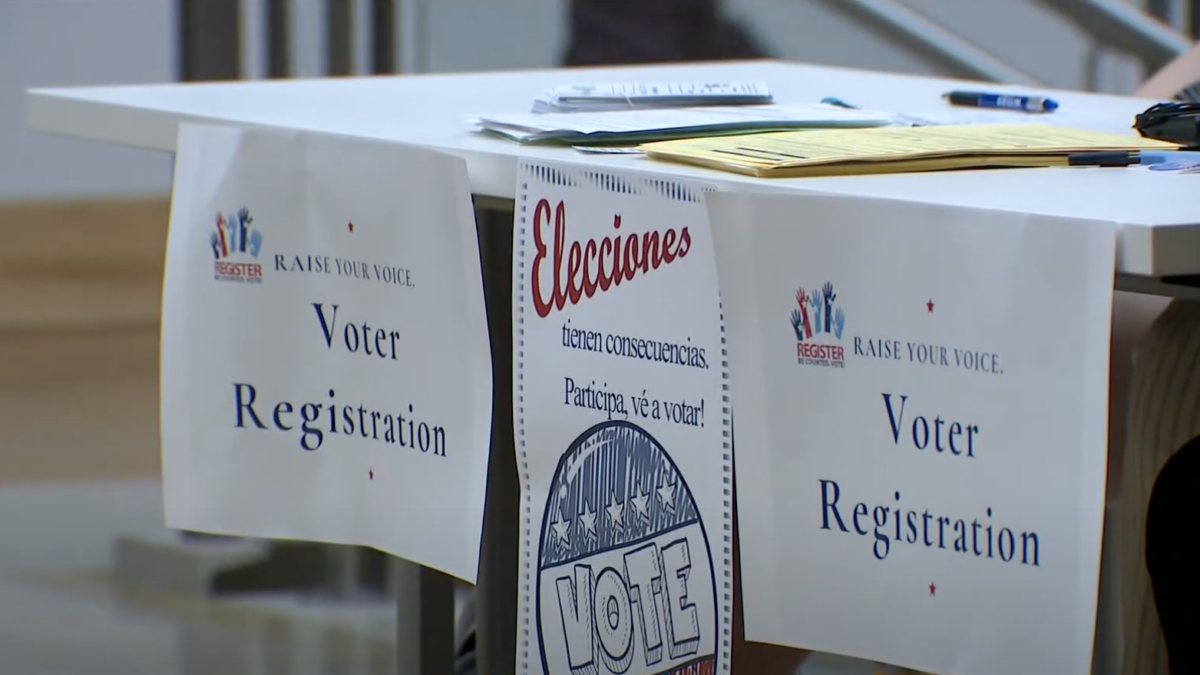
I’m sitting at my dining room table, which is piled high with clean, unfolded clothes. I’ve been avoiding my kitchen and the dried remnants of breakfast. I still haven’t called the handyman and gotten him to paint our ceiling and uproot the tree—ooh, and I still need to RSVP to that thing, and, crap, I need to go to the grocery or the kids will have nothing to eat tonight. How much pizza is acceptable for a child in a week?
I decided to take off from my day job today so I could write. I’m craving my clean, organized desk and my beautifully kept files at my work office. I feel calm and controlled there. Multitasking is my strength, and I can juggle many projects at once. Why do I have trouble applying that skill to my home?
Turning that question to my fellow contributors here at The Federalist, we hit upon the answer: Structure at work is important, because work itself is important. The home, conversely, does not feel important to us, and we do not apply the same mental discipline to our housework. Home and family just is; work is important to our finances, and therefore our survival.
That, of course, is a fallacy, and one could write a novel on the reasons home is of utmost importance. But like other life skills, learning to manage a home takes practice and time. Hence, I call for a return to home-economics classes—for both sexes—at schools and universities. Unlike Betty Crocker-inspired quick meals, though, this class would be an overall life skills class, and would need five basic units.
1. The Pinterest Unit: Cooking, Sewing, and Shop
Let’s get the stereotype out of the way. I have no idea how to use a sewing machine, and I taught myself hand stitching (which I do badly) from a Girl Scout workbook when I was a kid. I’m an okay cook, but my kids probably will never crave my home cooking. Although I’m crafty, my work looks like I tried to staple together a project while half-drunk and balanced on a yoga ball.
My mom is good at all these things, and I should have learned from her (a theme that will be echoed throughout this article). But, at the time, I had no interest. I was a serious student, so if I had to do all this for a grade, I might have become proficient in at least one stereotypical homemaking skill.
These stereotypical women’s skills should extend to men. My favorite “man blog,” Art of Manliness, states it clearly. Cooking makes you “self-sufficient…saves you money…keeps you healthy…is creative…[and] boosts your social skills.” In addition to “women’s work,” all children should have basic handyman skills and should learn how to service a car and change a tire. I love AAA as much as the next gal, but there are times you will just have to take care of it yourself.
“Shop Class as Soulcraft” highlights the beauty and dignity of manual work, while also tracing the evolution and subsequent demise of shop class in America’s schools. And in Forbes magazine, Tara Tiger Brown laments this decline: “a belief that learning how to swing a hammer or understand the difference between a good joint from a bad joint is part of a by-gone era, and as a society these skills are not something to strive for – something people resort to when they are out of options. Looking at shop class in this light is short-sighted and detrimental to America’s future…Shop class is dead and so are the potential trades people that would be born out of that early exposure to a tool or machine. What is America going to do without skilled workers who can build and fix things?”
Just as play-based education is widely hailed as the way to teach young children, working with your hands has value for older children and adults as well. There is “complex thinking” involved that teaches problem-solving and analysis.
2. Household Management, Cleaning, and Maintenance
As one of my fellow contributors pointed out, we have this notion of home-keeping as something for the unskilled and unintelligent. Sure, intelligent, accomplished women keep house, too—some choose to stay home after having children. But it couldn’t have been a hard transition, could it?
Instead, home management is akin to project management, with not only multiple moving parts but with multiple skills involved. Not only have many men and women not been properly trained in these skills, many don’t start practicing until they also have a newborn to cope with.
In fact, as Ruth Graham writes in the Boston Globe, the discipline of home economics was originally rooted in progressivism: bringing professionalism and rigor into women’s work. Keeping a home is a job unto itself, and it is important—but not enough of us are properly trained in that job, or perhaps, we are not trained to conceptualize it as a job. Programs such as Flylady’s self-help-slash-cleaning regiment indicates how desperate we are for guidance.
Cheryl Mendelson, author of “Home Comforts: The Art and Science of Keeping House,” states, “So many people imagine housekeeping to be boring, frustrating, repetitive, unintelligent drudgery. I cannot agree. In fact, having kept house, practiced law, taught, and done many other sorts of work, low and high-paid, I can assure you that it is actually lawyers who are most familiar with the experience of unintelligent drudgery.”
Now, I don’t want to blame the lack of home ec for why I personally am a lazy slob, but in the quest for self-improvement, being able to fall back on a basic home maintenance course would have been nice. And there are cultural factors to consider, as well. I didn’t know for the longest time about something as basic as pillow protectors that went under pillowcases (or mattress pads, for that matter). In all these examples and units—especially when considering nutrition and social interactions—there are blind spots due to cultural mores. I’m not arguing for homogenization—I mean, no one says your bed has to have a mattress pad—but it’s nice to know it’s an option.
3. Nutritional, Financial, and Sexual Literacy
Home ec actually does exist, in the form of family and consumer sciences classes. Most of these focus on finance and nutrition, both essential things to teach children. Many proponents of a home ec resurgence focus on the nutrition aspect. For instance, in a 2010 Journal of the American Medical Association (JAMA) commentary, Alice Lichtenstein and David Ludwig called for a return to home ec to combat the pediatric obesity epidemic. Almost a third of Americans under age 19 are now overweight or obese. Lichtenstein’s ideal class would include “basic cooking techniques; caloric requirements; sources of food, from farm to table; budget principles; food safety; nutrient information, where to find it and how to use it; and effects of food on well-being and risk for chronic disease.”
As for financial literacy, this is where I’m thankful for my parents’ avoidance of debt and their great example. That said, buying my first house and learning what a mortgage is was eye-opening, to put it mildly. And I truly (erroneously) believed you had to completely pay a credit card off every month—an example of a rather large gap in my financial education. It was a lucky gap, and many young people are not as lucky as I am. Credit card companies are notorious for preying on college students. A 2013 study indicates younger people are taking on more debt than previous generations, and paying it off slower—so slowly that they will remain indebted until their 70s. An ideal class would not only be about avoiding debt, but also the difference between debit and credit, the concept of supply and demand, how to do a 1040EZ tax form, and how to balance an account.
Just as home ec exists, obviously sex ed does too. But how many sex ed classes teach you how to make a baby? It’s not as easy at is seems. We spend a lot of time in sex ed classes on how to avoid getting pregnant, and the shift to actually trying to conceive leaves many women confused. I’ve long advocated a type of reproductive literacy class akin to financial literacy classes, one that may take away the debate about abstinence-only classes by not really focusing on teen behavior but on lifelong sexual behavior. A 2014 study showed a disturbing lack of knowledge among adult women about their reproductive health. I know I certainly had a lot to learn about the female reproductive cycle as well as learn some hard stats about how much a woman’s chance of conceiving goes down as she ages.
4. Child Development, Education, and Health
Despite being a self-proclaimed lover of children who had great experience with babysitting, when my daughter was born I realized how little I really knew about babies. I was scared to bathe her because no one had shown me how. Although I thought I understood breastfeeding, I didn’t know about cluster feeding, growth spurts, or the fact that some babies sleep for the first three days of their lives—things that seem obvious to me now, but not to a first-time mom.
Being sleep-deprived and hormone-addled is not the best time to accept your complete ignorance in these matters. Thank goodness for the Internet and a research obsession. I eventually caught up on Wonder Weeks and the timeline of a breastfed baby. Maybe I wouldn’t have actually remembered any of that stuff from a home ec class, but at least I would have recognized any gaps in my knowledge before I went into labor.From bringing home baby to helping your child learn to read and way beyond, a basic introduction to child development is invaluable to future parents. So is home medical knowledge, first aid, and CPR.
5. Etiquette, Dress, and Habit
Concepts one should learn are those in “The Seven Habits of Highly Successful People,” “Dress For Success,” “How to Win Friends and Influence People,” and Emily Post’s “Etiquette.” I don’t wholly endorse each book (See Jezebel for a hilarious takedown of “Women’s Dress for Success”), but the main points in the first three, with Emily Post as a reference guide, are invaluable.
Despite some tone-deafness in the women’s version of “Dress for Success,” for example, I followed the author’s guidance about wearing blazers with my outfits when I was in a workplace in which I wanted to climb the ladder. (Now, as an assistant, I stick to nice dresses and a cardigan). Eric Jackon, reviewing the “Seven Habits of Highly Successful People,” noted he could not remember most of the “habits,” but that the book’s overview of the difference between urgent and important was incredibly useful. I myself was heavily influenced by Dale Carnegie’s “How to Win Friends and Influence People” and Post as a child, and gave my little sister “Etiquette” as a present for her thirteenth birthday. (Yes, I know. Worst. Big sister. Ever.)
When we debate class privilege, these manuals are the types of things I think of: books that bring out into the open those oft-hidden societal rules the privileged just absorb by watching adults around them. It’s a hard skill to teach, and it’s a hard thing to pick up the older you get. For anyone, an introduction of how to navigate middle-to-upper class American society is, again, not an attempt at homogenization but an effort to breed familiarity with a certain manner of living. This passing familiarity may be the most we can hope for in a new super-home economics or life skills class, but it’s an investment worth making.









